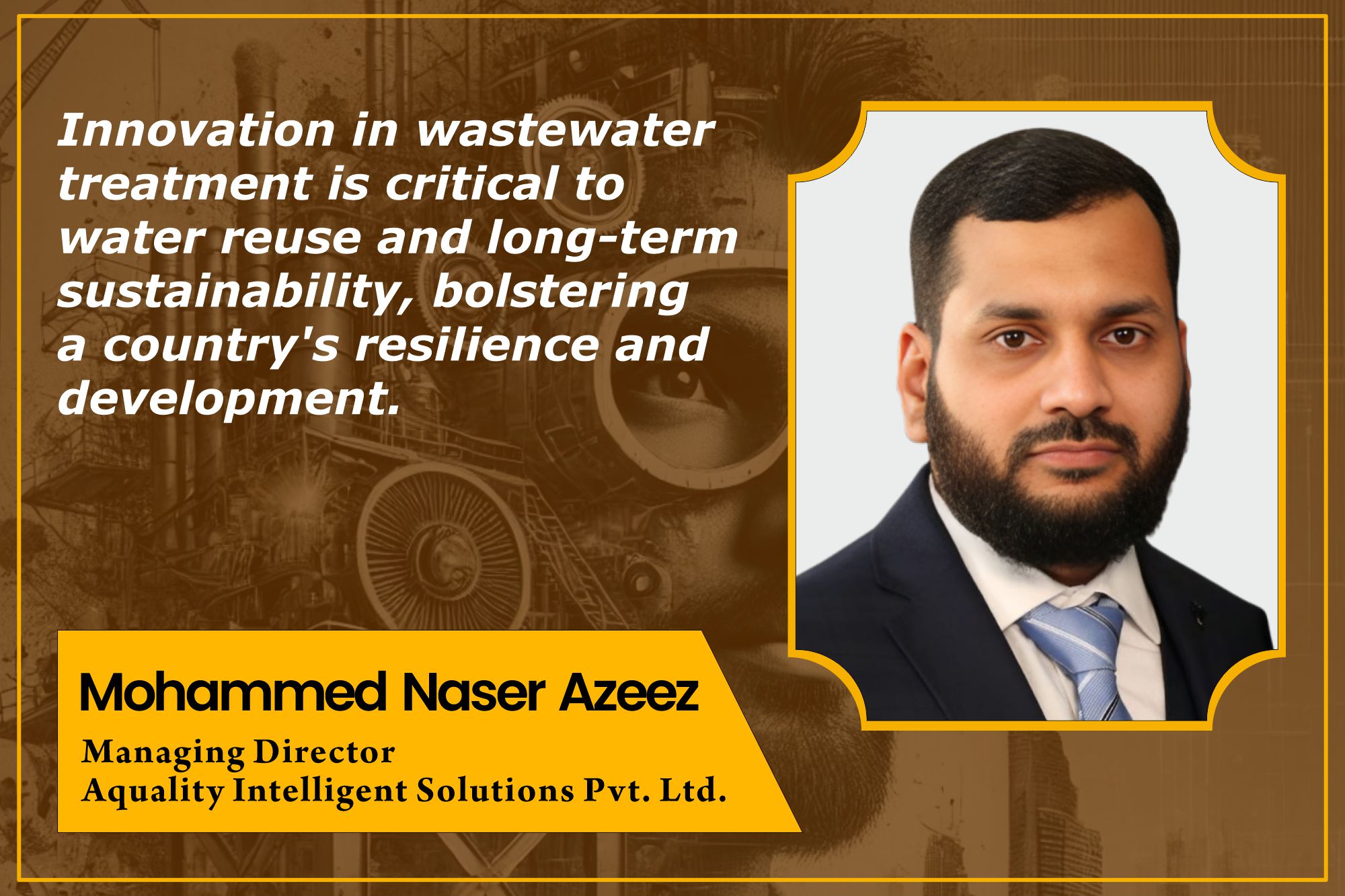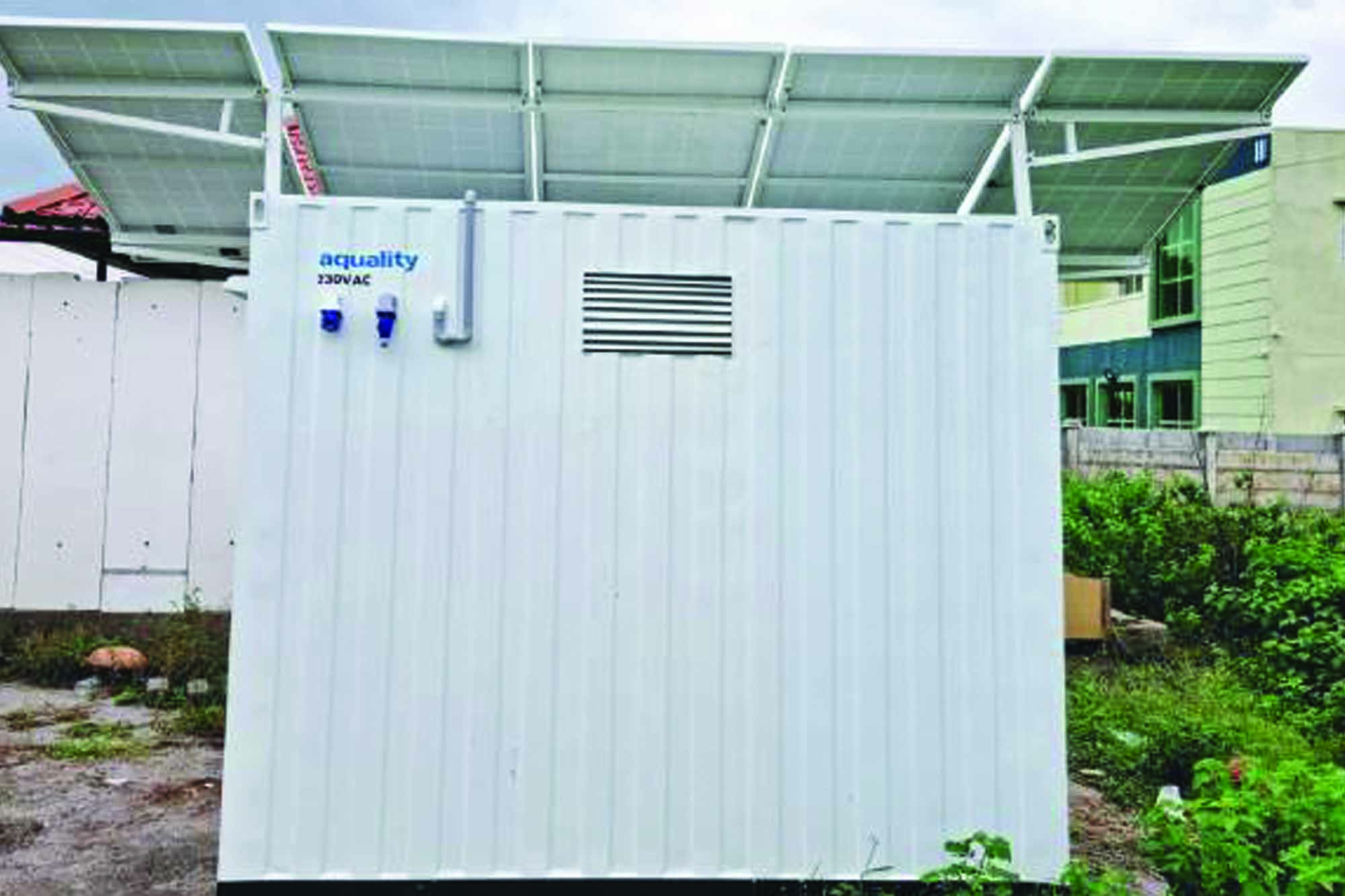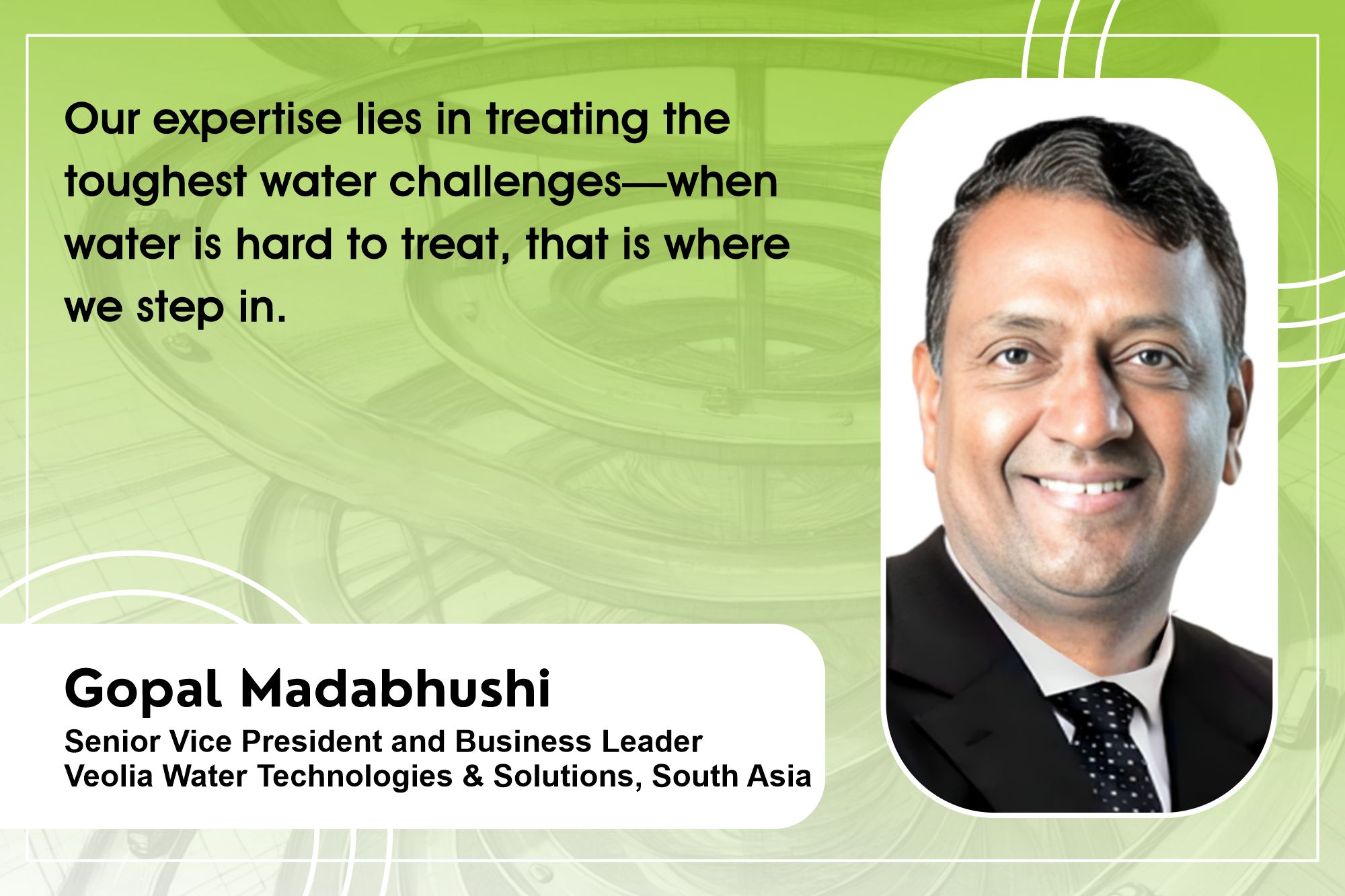A scalable approach to urban and rural wastewater challenges
By Staff Report | February 11, 2025 7:29 pm SHARE

This interview explores the advanced technologies, smart systems, and sustainable practices that redefine wastewater treatment by increasing efficiency and sustainability while addressing global water concerns.
How are advanced technologies like membrane filtration, advanced oxidation, and biological nutrient removal revolutionising wastewater treatment for efficiency, safety, and sustainability?
With advances in membrane technology, filtration systems now provide greater contaminant removal, resulting in high-quality water with minimum chemical use. Advanced oxidation, which includes ozone, hydrogen peroxide, and UV radiation, effectively breaks down complex contaminants such as pharmaceutical compounds that persist after regular treatment, resulting in safer and cleaner water for reuse.
BNR uses microbial processes to remove nitrogen and phosphorus sustainably, eliminating chemical reliance and sludge formation. Integrating these technologies improves wastewater treatment by allowing resource recovery and energy efficiency. These advanced technologies help comply with severe environmental standards while also lowering operational expenses and environmental footprints.
How are smart technologies and automation transforming wastewater treatment through predictive maintenance, real-time monitoring, and data-driven decisions?
Combining Cutting-edge technologies and automation redefines wastewater treatment by combining IoT, AI, and sophisticated analytics to improve operations and sustainability. Real-time monitoring systems with IoT-enabled sensors monitor crucial factors such as water purity, flow rates, pressure, and equipment performance. These systems give real-time data, allowing operators to discover and address issues quickly, decreasing response time and risk.

Data-driven decision-making uses advanced analytics to understand massive amounts of data received from treatment plants to adjust operations dynamically, hence improving resource utilisation and regulatory compliance. By combining these technologies, wastewater treatment plants are becoming smart, linked systems that maximise efficiency, reduce environmental impact, and react to future challenges with resilience and agility.
How do green chemicals and sustainable practices reduce wastewater treatment’s environmental impact, and how are they integrated into systems?
Green chemicals and sustainable treatment procedures are essential for reducing environmental effects in wastewater management. Green chemicals, derived from renewable and biodegradable sources, replace traditional chemicals, which frequently leave toxic residues. Their adoption assures that treated water is safe for reuse and discharge while also complying with environmental requirements and promoting sustainability goals.
Sustainable treatment strategies, such as enhanced biological treatment technologies, membrane filtration, and resource recovery techniques, improve wastewater management’s efficiency and environmental friendliness. Anaerobic digestion is one innovation that helps collect biogas for energy generation, while nutrient recovery technologies reclaim key resources such as nitrogen and phosphate, reducing dependency on synthetic fertilisers.
Integrating these solutions into current systems entails retrofitting facilities with modern technology to manage new processes properly. Collaborations across technology providers, sectors, and solution providers are propelling the adoption of these practices, guaranteeing a smooth transition. We have included green chemicals and sustainable techniques in our small wastewater treatment systems, allowing us to drastically minimise the environmental effect of treatment while encouraging resource conservation and long-term sustainability.
How do renewable energy sources like solar power benefit wastewater treatment, and how has your company integrated them?
Renewable energy sources, particularly solar electricity, benefit water and wastewater treatment facilities by lowering operational costs, increasing energy efficiency, and reducing carbon emissions. Solar power is a clean, dependable, and sustainable energy source that helps facilities reduce reliance on traditional energy. This is especially useful in distant areas with limited grid access, as renewable energy ensures that treatment systems run continuously. Solar energy lowers electricity costs, making water and wastewater treatment more economically viable in the long run.

We use solar energy to power our water and wastewater treatment systems, assuring sustainability and efficiency throughout each project. We design and integrate solar photovoltaic systems into our treatment systems to meet the energy requirements of pumps, filtration units, and control systems. These solar-powered treatment systems are designed to varied capacities based on site requirements, maximising energy efficiency while minimising environmental effects.
Our efforts include outfitting remote locations, such as those used by Indian security personnel in forests, border areas, and human settlements, with totally solar-powered devices. These systems are intended to function independently of external energy sources, providing dependable, clean water and wastewater treatment in harsh locations. By incorporating solar power into our operations, we cut greenhouse gas emissions while increasing the resilience and sustainability of our solutions, resulting in a cleaner and greener future.
What role does decentralised wastewater treatment play in urban infrastructure, and how can it benefit growing cities and rural areas?
With a growing population and restricted space, decentralised wastewater treatment provides adaptable, sustainable, and efficient wastewater management solutions in quickly increasing cities and rural areas. Unlike centralised systems, which rely on lengthy pipelines, pumping stations, and large-scale treatment facilities, decentralised systems treat wastewater closer to its source, making them more adaptable to changing population densities and geographic limits.
Decentralised systems reduce the need for costly infrastructure upgrades in metropolitan areas, relieving pressure on overburdened centralised networks. They can be strategically placed in new developments where expanding centralised pipelines is impossible. These systems also enhance resource recovery by reusing cleaned water for irrigation, landscaping, or industrial applications, thereby saving freshwater supplies. In rural locations, decentralised systems offer dispersed communities a practical and cost-effective alternative. These smaller-scale systems are easier to install and maintain, use less energy, and work well with renewable energy sources.
Incorporating decentralised wastewater treatment into urban and rural design increases resilience, promotes sustainable development, and addresses water scarcity and pollution concerns. By prioritising localised solutions, cities and communities can build infrastructure that is scalable, environmentally sustainable, and capable of meeting the demands of a continuously changing world.
For more information, visit: https://aquality.co.in/
Cookie Consent
We use cookies to personalize your experience. By continuing to visit this website you agree to our Terms & Conditions, Privacy Policy and Cookie Policy.




































-20240213125207.png)

























